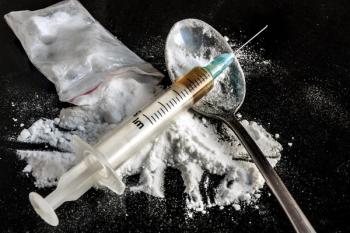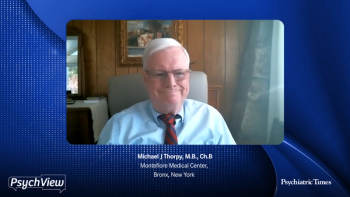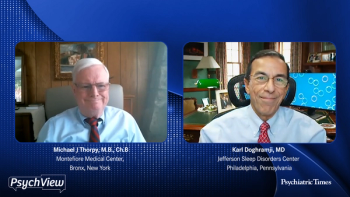
A panel of experts discuss the parameters of the opioid epidemic and the role fentanyl plays within it.

A panel of experts discuss the parameters of the opioid epidemic and the role fentanyl plays within it.

What 5 things can you do to support your career and prevent burnout?

Coadministration of zuranolone with a standard antidepressant yields positive outcomes.

"But Who am I kidding? The weekend was about Basketball."

How do you prevent burnout?

"All anyone wants to know is when spring will get here..."

We need to talk about the startling suicide rates in Black girls and women...

"...so close that your emissions of carbon are mine, so close your sea rises with my heat.”

Sports: entertaining and reflective of our society at large.

Playing with opioids is a dangerous game...

This Sigourney Award winner is glad the recognition can continue supporting the mission of their work.

"...barriers that create space for healing placed close enough to hear everyone’s cries of longing and love..."

Experts in sleep disorders provide clinical practice pearls and takehome messages for the management of insomnia.

Shared insight on the treatment and management considerations of insomnia and related sleep disorders.

Michael J Thorpy, M.B., Ch.B and Karl Doghramji, MD discuss the impact of COVID-19 on sleep disorders and depression.

Shared insight on clinically utilized treatments for parasomnia and sleep disorders.

A brief overview of the sign, symptoms, and range of parasomnias.

Experts in sleep disorders review the DSM-V Diagnostic Criteria for insomnia disorder and discuss sleep disorder permutations.

Michael J Thorpy, M.B., Ch.B and Karl Doghramji, MD provide an overview of insomnia, highlighting the incidence and disease burden.

Psychoanalysis and dermatology: this Sigourney Award Winner is bridging the 2 specialties.

Anti-Semitism has been rising again around the world, and here's how the past can help us.

This expert panel fields multidisciplinary questions on maskne, compliance, access to care and more.

Acne patients are benefitting from a robust pipeline with treatments that hold promise for increased efficacy and safety. First-in-class additions to the FDA-approved armamentarium, such as the novel antiandrogen clascoterone (Winlevi; Sun Pharma), give dermatologists and pediatricians new tools to combat this skin condition. Speakers offer insights on matching medications to individual patient needs and controlling costs.

Speaking from their unique perspectives, physicians and a psychologist share their success strategies for opening a dialogue with pediatric patients and their families about acne’s sometimes devastating impact on their mental wellbeing and quality of life, danger signals to watch, and why the term “bullying” has no place in the conversation.

Panelists provide pearls on how to make a smarter diagnosis, tailor treatment plans to patients’ lifestyles and preferences, and motivate pediatric patients to adhere to their treatment plan.

Should physicians ask parents to leave the exam room to ensure a pediatric patient’s privacy and comfort level? Or is acne a family matter? Will pediatric patients talk openly about the physical and psychological burdens of this skin condition or does the physician need input from parents? Find out the cues, clues, and conversational tips to get to the roots of acne’s impact.

The initial visit with a pediatric or adolescent patient with acne and their parent or guardian goes beyond obtaining a detailed medical history. The conversation needs to address a broad range of acne’s physical symptoms and psychological effects on the patient and their family. The panelists offered best practices on how to drill down for that information within the limitations of time and scope each individual doctor faces.

Acne may be the most common skin condition in the United States, with various studies estimating 79% to 95% of Americans age 12 to 24 experience at least a minor case, but diagnosing, treating, and managing care for pediatric patients affected by it has never been more complex. Dermatology Times® and its sister brands, Contemporary Pediatrics® and Psychiatric Times™, asked thought leaders across disciplines to share their insights as speakers for this exclusive webinar.

"Before you know what kindness really is you must lose things..."

One doctor shares his musical background and the joys of finding your voice through music.